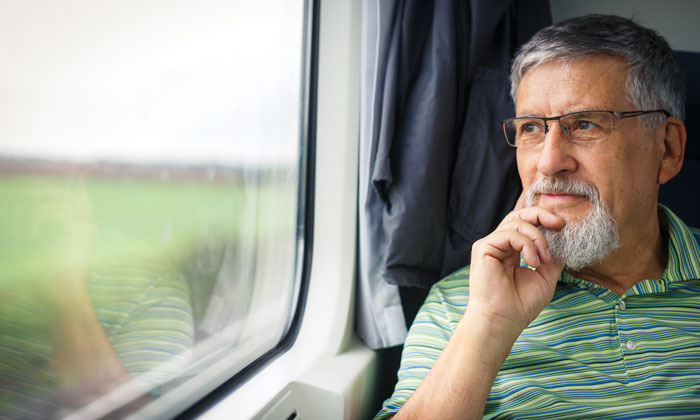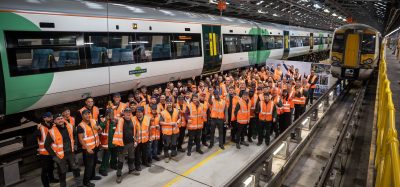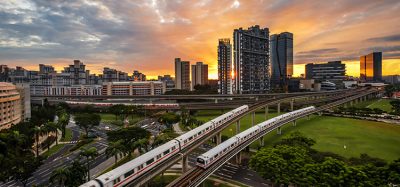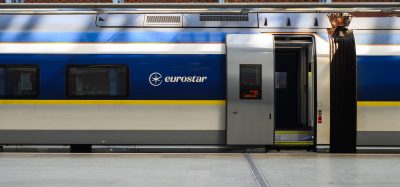A high-speed future – what do passengers want?
Posted: 23 November 2016 | | No comments yet
The UK’s High Speed 2 project has the potential to transform travel between major cities – but what do passengers really want from the new railway service? In this article Ian Wright, Head of Insight from Transport Focus, explains that understanding the needs of passengers is a crucial element if the project is to be delivered successfully.


Currently in Great Britain media coverage focuses on crowding, industrial relations issues, and performance problems. In the middle of this passengers are just trying to catch trains and get on with their lives. Now more than ever we are working to boost the voice of the passenger.
Not only does that mean making sure passengers get a fair deal right now, but also ensuring that services of the future reflect passengers’ needs.
Building a brand new railway presents a unique opportunity for passengers. High Speed 2 (HS2) has the potential to transform travel between our major cities, but this can only be achieved by really understanding the needs of passengers. HS2 was determined from the outset that passengers should be at the heart of design.
In order to achieve this, HS2 and Transport Focus created a panel to find out: if you were going to create a train service from scratch, what would ‘you’ – the passenger – want?
Our passenger panel is made up of around 40 rail passengers across a spread of demographics and travel behaviours. They give their views through an online community and regular in-person workshops. Now in its third year, our panel members share what they want from all aspects of the train service of the future.
Initially we gave the panel a blank sheet of paper – there were no limitations on their suggestions. Of course, this will have to be translated into reality, but we wanted to encourage maximum creativity. Now they are starting to see how their ideas have been used by HS2.
We asked about the physical design of the HS2 network; the actual trains; and what kind of experience they wanted from a journey. Overall we have learned the following:
- The panel want to be treated as valued ‘customers’ who have needs beyond simply getting from A to B alone
- The panel felt the rail industry could improve its customer service to match service levels found in other sectors such as retail, technology and on airlines – so HS2 should prioritise customer needs to ensure its experience is ‘designed for the customer’
- There was a strong plea for affordable ticket pricing so that HS2 is truly accessible for all
- The role and approach of staff alongside proactive, accurate communication is crucial for customers to feel valued.
Journey planning
Passengers liked the idea of an app, especially one that could act as a ‘one-stop shop’ for the whole journey. This could include route
planning, travel news, buying tickets, linking to their calendar, sending details to fellow travellers and organising other related bookings such as hotels and restaurants.
I think that having a HS2 app is an excellent idea, and personal data should be captured in order to save having to re-enter information time and time again.”
(Business passenger, London, aged 51-60)
While data security was a concern, our panel broadly trusted HS2 as a ‘big name’ to act responsibly with their data.
Tickets
Our panellists were keen to benefit from technological innovation. The key features of their ideal system were:
- One price, regardless of how the ticket is purchased (online, app, over phone etc.)
- Flexible – can change details after booking
- Reward frequent users (such as 10 journeys for the price of 8)
- Intuitive
- Fair
- Both e-tickets and paper tickets on offer
- Discounts for different groups
- All tickets should include reserved seating
Stations
Passengers have pride in their local area and want to show it off. They suggested giving HS2stations a ‘regional twist’ – but it must be subtle, modern and about aspects of the area that locals are proud of, rather than stereotypes or clichés.
My concern with additional things such as valet parking, pods and all other technological advances is there will be a significant cost to this, and this has to be picked up by the customer at some point!If you are trying to raise the profile and use of the service, then it still needs to be affordable!”
(Leisure passenger, Newcastle, aged 18-30)
The panel looked at various ideas to make getting to the station and then the train easier, such as reserved car parking and baggage drop services. In particular they want HS2 services to be accessible to all.
Mid-journey connections are a source of huge concern. It starts before the journey begins as passengers anticipate problems. Worries include not having enough time; finding the platform; being slowed down by luggage; and missing connections.
The panel suggested solutions including mobile apps showing departure platforms, uniform station design and electronic station maps.
However, what was also clear was that passengers still value the ‘human face’ of staff on the ground despite all the new technology available. Their interaction with passengers, and the information they provide, particularly when journeys are disrupted, is important.
On-board
Toilet design and ease-of-use were popular topics among the panel. Passengers highlighted:
- Cleanliness
- Issues with locking mechanisms, which made some feel panic at the prospect of using toilets
- Lack of space
- Lack of maintenance.
Loos on trains should be as comfortable and easy to use as your loo at home; it’s so often the case that they are more of a last resort and avoided when possible.”
(Business passenger, Liverpool, aged 41-50)
We also asked about how people spend their time and what facilities were needed. Rather than equipping all seats with advanced functionality for everyone, the panel suggested that HS2 could provide designated spaces (some of which could be bookable) for activities such as meetings, making calls or eating and drinking.
We know that in order to build greater trust with passengers it is important not only to deliver a punctual and reliable service, but a service with passengers at its heart. Not only do these findings provide lessons for journeys of the future, they are vital to understanding passengers’ hopes for train services now and for upcoming franchises.
Recently we saw Northern Rail out and about at a local station, asking passengers to try out new train seats and vote for their favourite design for its future rolling stock. A simple idea you might think, but it’s this sort of engagement that makes us feel involved and goes some way to showing that train operators are on the side of passengers.
Biography


OUT NOW: The Definitive Guide to Rail’s Digital Future
The rail industry is undergoing a digital revolution, and you need to be ready. We have released our latest market report, “Track Insight: Digitalisation.”
This is not just another report; it’s your comprehensive guide to understanding and leveraging the profound technological shifts reshaping our industry. We move beyond the buzzwords to show you the tangible realities of AI, IoT, and advanced data analytics in rail.
Discover how to:
- Optimise operations and maintenance with real-time insights.
- Enhance passenger services through seamless, high-speed connectivity.
- Leverage technologies like LEO satellites to improve safety and efficiency.
Featuring expert analysis from leaders at Nomad Digital, Lucchini RS, Bentley Systems and more, this is a must-read for any rail professional.







